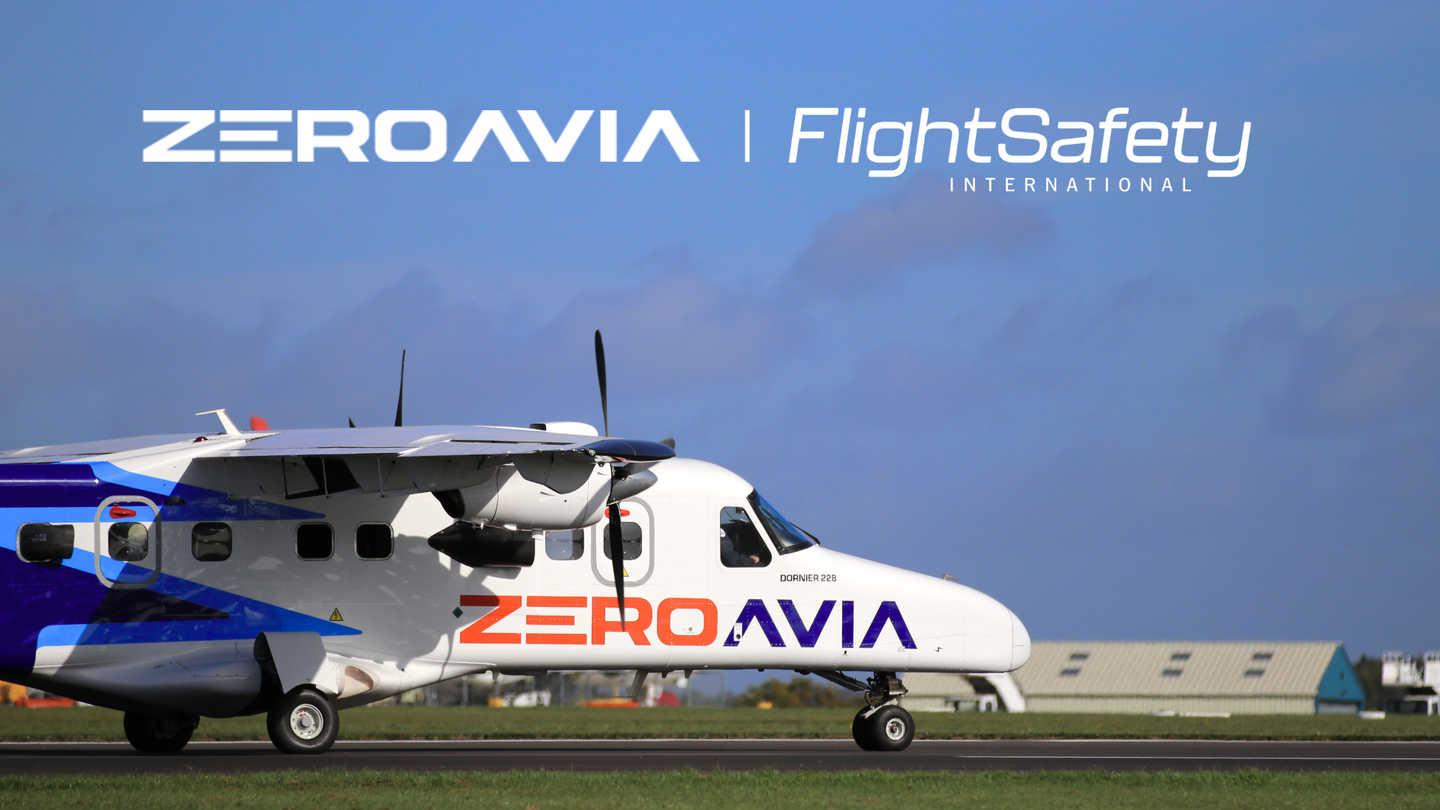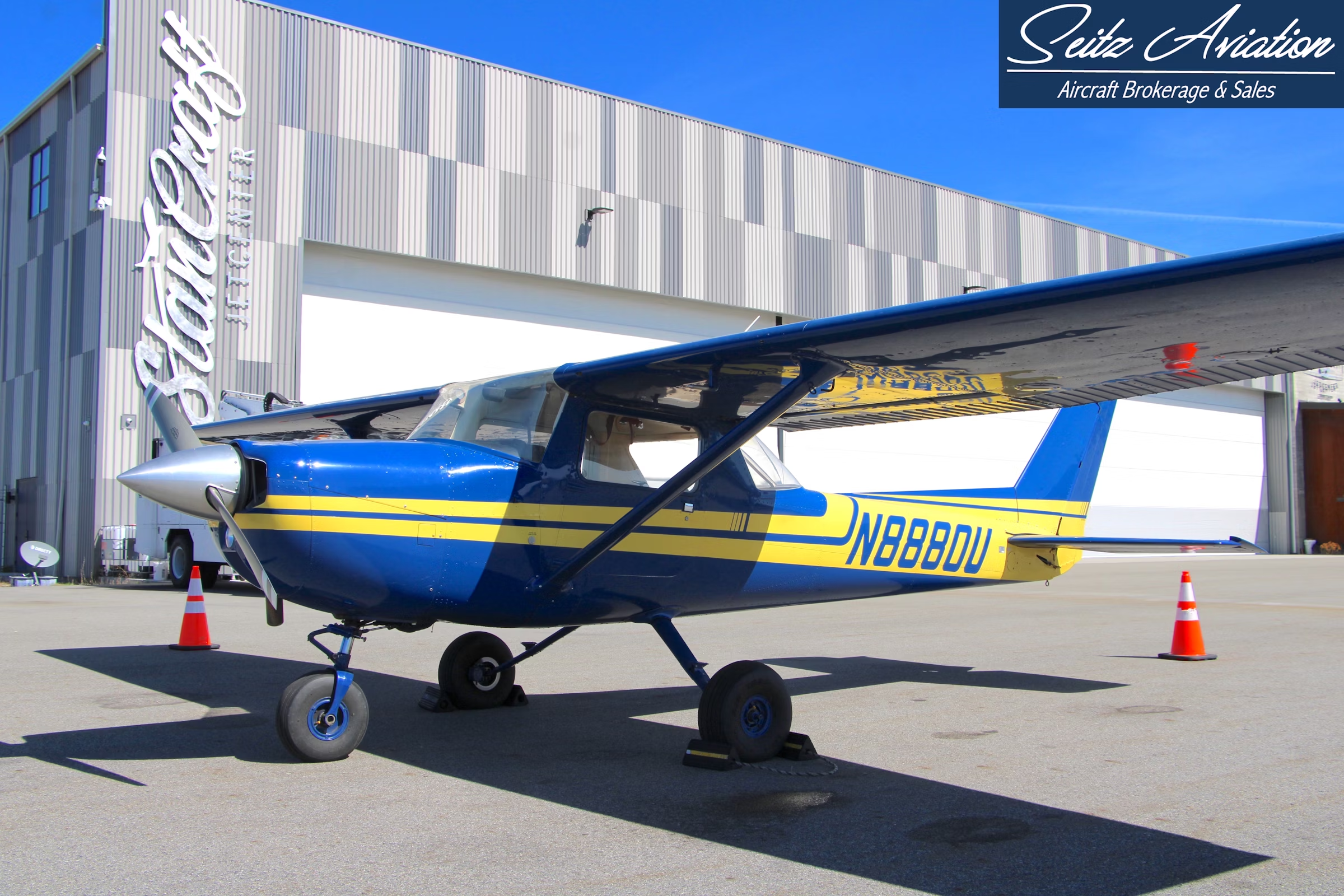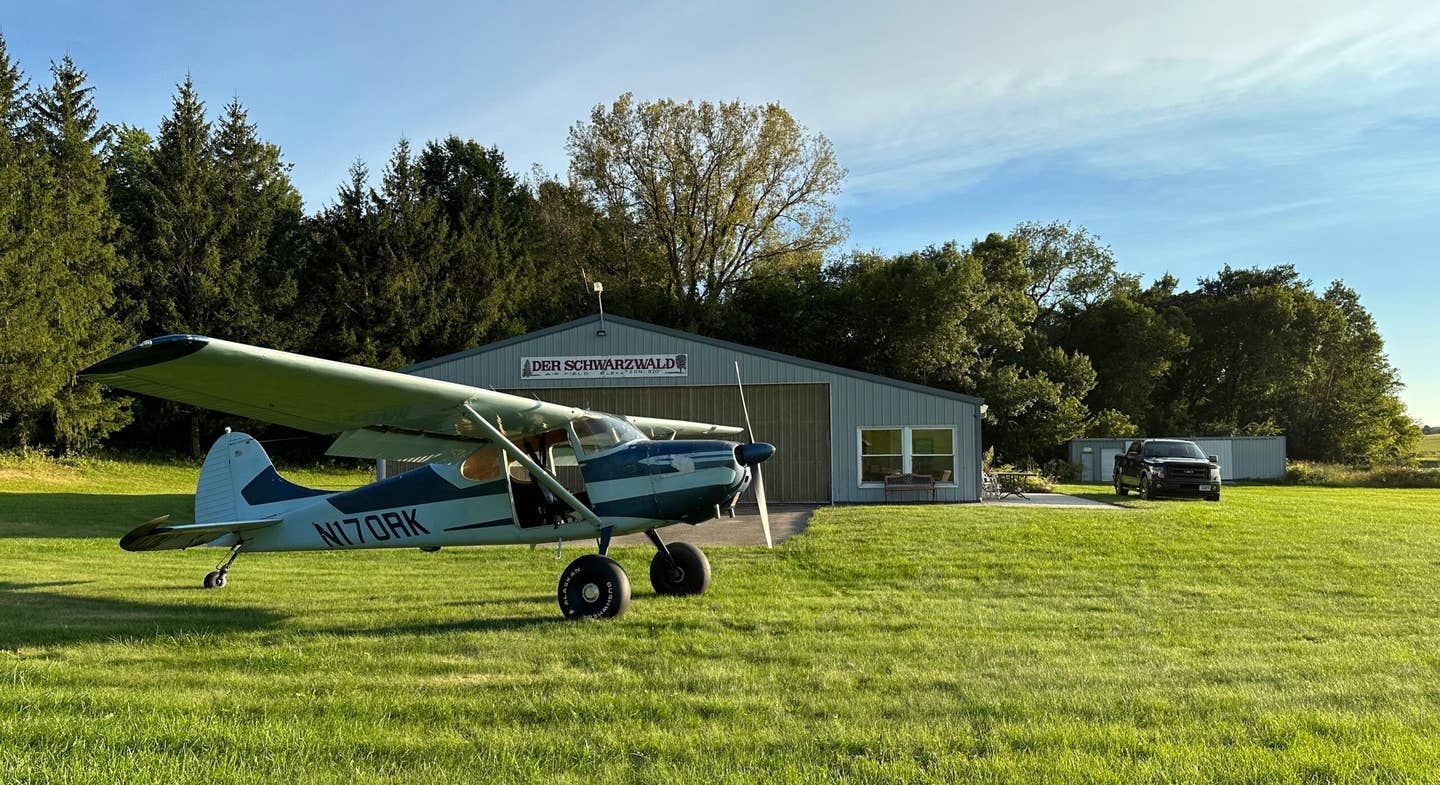ZeroAvia, FlightSafety International to Train Pilots on Hydrogen-Electric Aircraft
Flight school trains some 52,000 civil pilots annually and says it will work with regulators on ‘future governance’ of training involving hydrogen.

ZeroAvia and FlightSafety International are joining forces to develop training materials for hydrogen-powered aircraft. [Courtesy: ZeroAvia]
FlightSafety International is preparing aspiring aces for a hydrogen-powered future.
The company on Thursday signed a memorandum of understanding (MOU) with ZeroAvia, a hybrid-electric engine developer, to build flight simulators, “digital learning platforms,” and other training materials geared toward the introduction of hydrogen fuel cell electric aircraft. The partners said they will work with regulators to “explore future governance of training for new, clean alternative propulsion technologies” for pilots and maintenance technicians.
FSI offers training for pilots, technicians, flight attendants, and dispatchers, including government and military personnel, at facilities in nearly 40 locations worldwide. It trains about 82,500 people per year, including some 52,000 civil pilots.
“We are committed to developing training that provides peace of mind to flight operations and their passengers,” said Nate Speiser, executive vice president of sales and marketing for FSI, in a statement. “We are confident that ZeroAvia has the expertise to bring their vision of zero-emission engines to market, and we are proud to establish the training for this innovative type of aircraft.”
ZeroAvia is at the forefront of the hydrogen-electric aircraft industry, having recently recorded the first sale of its ZA-600: a 600-kilowatt electric propulsion system designed to power aircraft with as many as 20 seats. Last month, the firm received an FAA G-1 issue paper defining the certification basis for that powertrain.
In 2023, it flew a 19-seat Dornier 228 testbed retrofitted with the ZA-600—the largest aircraft to lift off under hydrogen-electric power. It is developing a larger powertrain for aircraft with 40 to 80 seats.
ZeroAvia said it has more than 2,000 engine preorders, including from major carriers such as United Airlines, Alaska Airlines, and American Airlines, which in July committed to a conditional purchase of 100 engines. The company also works with airports to equip them for new propulsion systems and is developing in-house solutions for hydrogen production, mobile storage, and dispensing.
“As we look towards certification and entry-in-service of our first engines and then scaling up the technology into larger aircraft, it is essential we work with the best partners to prepare our customer airlines and other organizations,” said Oliver Henstridge, vice president of sales and business development for ZeroAvia.
The company also works directly with aviation manufacturers who are increasingly experimenting with hydrogen. De Havilland Canada, for example, in 2021 signed an MOU with ZeroAvia to develop a hydrogen-powered variant of its Dash 8-400. The turboprop has logged more than 11 million flight hours.
The firm’s most notable collaboration is perhaps with Airbus, one of the few legacy manufacturers pursuing a hydrogen-powered concept. The partners’ “Hydrogen Hubs” project is studying the feasibility of hydrogen infrastructure for airports in Canada.
Airbus earlier this year scaled back its ZeroE future propulsion program but this week announced it will pursue a concept for a fully electric model powered by a hydrogen powertrain. CEO Guillaume Faury, though, cautioned that the industry may struggle to hit its sustainability targets.
Other companies developing hydrogen-powered designs include Beyond Aero—which this week said it is on track to deliver a certified hydrogen-electric light jet by 2030—and H2Fly, a subsidiary of electric air taxi manufacturer Joby Aviation. Joby is developing a vertical takeoff and landing (VTOL) design and last year said liquid hydrogen will be a key piece of its plans for a regional mobility service.
Flight schools are simultaneously preparing for electric models, such as Joby’s flagship S4 and other electric VTOL (eVTOL) designs. FSI, for example, had an agreement with eVTOL developer Lilium before the German firm shut down in February. NASA, meanwhile, is working with Electra to design what it describes as the electric commercial airliner of the future.
That future is approaching quickly. China in January certified the world’s first four-seat electric aircraft for commercial flight. Even before then, manufacturer Pivotal in October said it delivered its BlackFly—a prototype personal eVTOL with Part 103 ultralight permissions—to five private customers, two of whom told FLYING they are taking it out routinely. Pivotal opened U.S. sales of its Helix production model for $190,000 last year.
Trainees around the country are already flying Pipistrel’s Velis Electro, an electric model that is beginning to pop up at flight schools, under an FAA light-sport aircraft exemption. In 2022, Right Rudder Aviation student pilot Shane Fisher became the first to earn a private pilot certification using an electric model, completing his check ride in the Velis.
ZeroAvia, coincidentally, has a nonexclusive agreement with Pipistrel parent Textron Aviation to build a hydrogen-electric powertrain for Textron’s Cessna Grand Caravan. This week, it received a U.S. Air Force grant to design a concept for a self-flying, 8,000-pound, hydrogen fuel cell-powered variant of the Caravan.
Like this story? We think you'll also like the Future of FLYING newsletter sent every Thursday afternoon. Sign up now.

Sign-up for newsletters & special offers!
Get the latest FLYING stories & special offers delivered directly to your inbox






